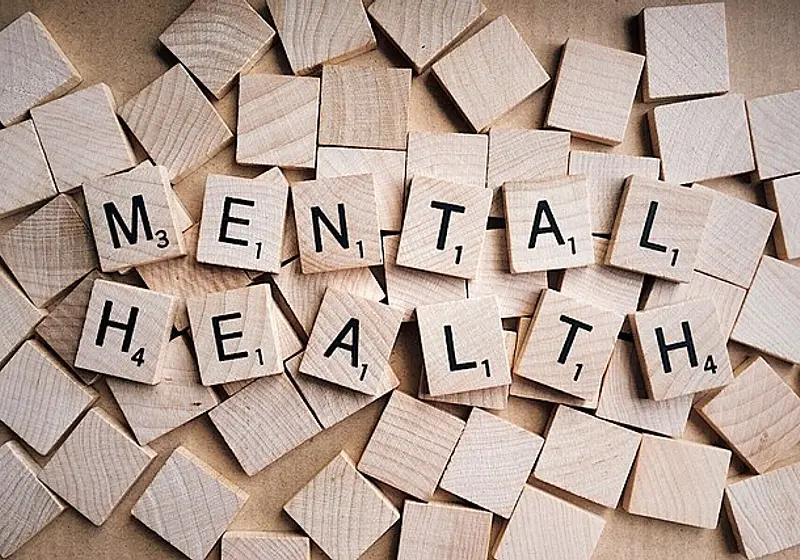This is very much unsaid, but it's more important than ever. It needs to be said: Social media will kill you before any degenerative disease ever does.
Although it comes off as brutal, this statement could not be more authentic. Back in 2017, a study by Primak established a connection between the usage of various social media platforms and increased depression and anxiety symptoms in young people aged 19-32. That same year, The Royal Society for Public Health asserted that the use of these social media applications is more addictive than cigarettes and alcohol.
What's interesting is that it's not the addiction to social media that harms society per se. Instead, it’s precisely what these users are addicted to. Are they addicted to the favorable facets that these platforms show, such as encouraging Instagram posts or wholesome content that makes one grin after a bad day? Or have they plummeted under the spell of being submissive to intoxicating mindsets that generate a chain reaction within their ideas?
Day after day, numerous thoughts or things we notice follow us and chase our forthcoming efforts, whether we want them to or not. This can be deducted as an impression that the subconscious mind buys, controls, and elicits demeanor. It’s as simple as someone bringing something up that you had no prior knowledge of, and now every time you think of that one thing, it reminds you of when that person first told you about it.
A more concrete example would be the following: let’s say you went your whole life without noticing or caring what your nose looked like. Eventually, someone in your life (could be a friend, a stranger, or a lover) tells you you have a pretty nose. Suddenly, this comment you never gave thought to will store itself in the ‘system unconscious’ of your brain. This system is found primarily in the basal ganglia and the cerebellum.
Now, you won’t get to regulate the cognitive function of recalling this comment almost every time you glance at your nose in the mirror. This is connected back to a famous psychoanalyst, Sigmund Freud, and one of his many theories. However, this one particular hypothesis believes that “personality is derived from the constant and unique interaction of conflicting psychological forces,” asserted by VeryWell Mind.
At one point or another, this has happened, is happening, or will happen to teenagers through social media. A simple motor function of scrolling through our phone screens will later be responsible for the slow homicide of salvaging our mental health.
You don’t have to think directly about it for it to govern your behavior indirectly. Seeing hundreds of Instagram posts and TikTok videos is enough to make one compare themselves to the unrealistic standards based on what people want you to see, not what actually is. Chances are, the people you’re following on social media will never post the actualities of their reality. Instead, they’ll post what’s most aesthetically pleasing, what will get the most views, what will give others the notion of who they are not.
Tracking this back to a psychological etiology, we notice that always wanting to appear powerful and optimistic and never vulnerable isn’t caused by low self-esteem. Instead, it’s a product of the desire for affection, which is the intensity at which people want to feel anything, Forbes Magazine explains. If uncontrolled, this need for validation and gratification can be dangerous.
Another placebo-type effect social media can have on people is the continual talk about comparison. Bringing awareness to the topic of contrast is necessary to prevent others from partaking in it, but sometimes this excessive understanding can also lead others to develop a mindset. From subjective experience, I spent years being confident in who I am as a person, and I still take pride in the person everyone and everything around me has molded me to be.
Still, I noticed I began giving myself away to the lethal mentality that social media platforms may promote. I started comparing myself and rethinking all of my features which I once admired.
Whose fault is that? No ones. It’s not the fault of the girl I may be comparing myself to, and it’s not the fault of my permanent foundation of confidence slowly chipping away at the efforts of social media.
It’s simply that this problem affects many others, not just teenagers, and the solution is never talked about. What’s the point of bringing awareness if we also don’t propose a resolution to the table?
Talking about solutions, how exactly could you save yourself from this poisonous mentality or prevent yourself from ever entering it? Is there a way we can enter our subconscious mind to examine and effectively alter the beliefs sheltered there? You can.
Forbes also explains this solution is tied back to quantum physics. In physics, the act of detecting a particle has been indicated to influence its behavior actively. If we turn this act of study into ourselves and dive into our subconscious, we can closely examine the thoughts we developed long ago and see how they run our lives.
The voice in our head has more ability than we think. This voice is powerful because we won’t know who that voice belongs to if we don’t honestly understand ourselves. Just because it’s stationed inside your head doesn’t mean it’s yours.
Again, our personalities, which derive from our beliefs, are driven by the extraordinary interaction of clashing psychological forces. We need to be in a continuous period of self-awareness, self-reflection, and self-correction to assemble the stable foundation we need to segregate our thoughts from the standards of the real world.
Remember, although concealed, traces of social toxicity can be left in our minds. Just because we can’t see them, it doesn’t mean they don’t have the strength to run how we view our past, how we act on our present, and how we plan for our future.
















